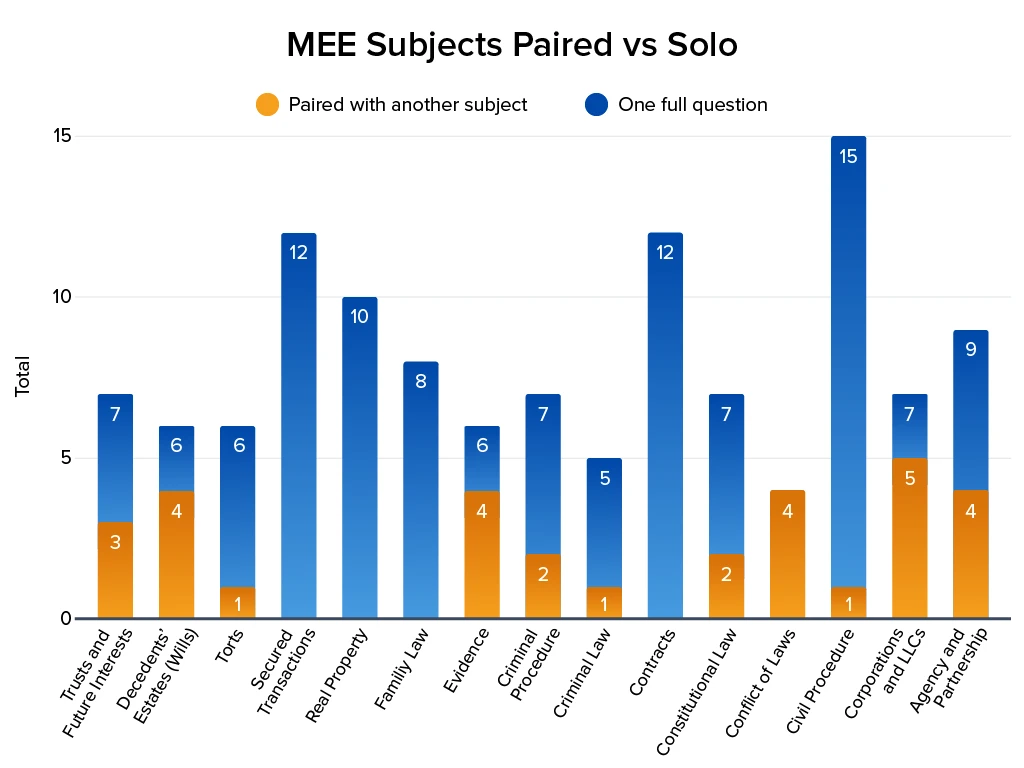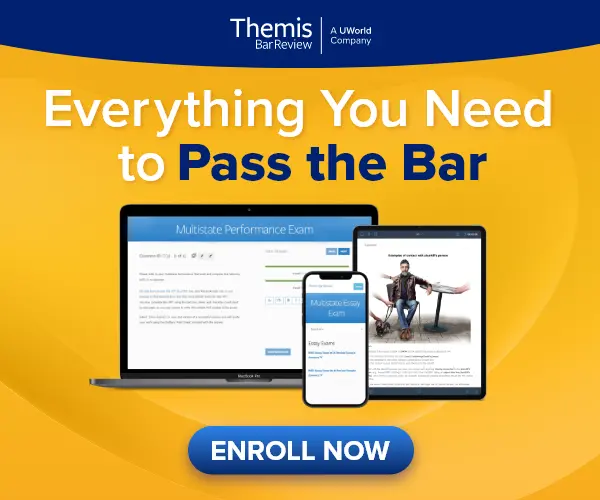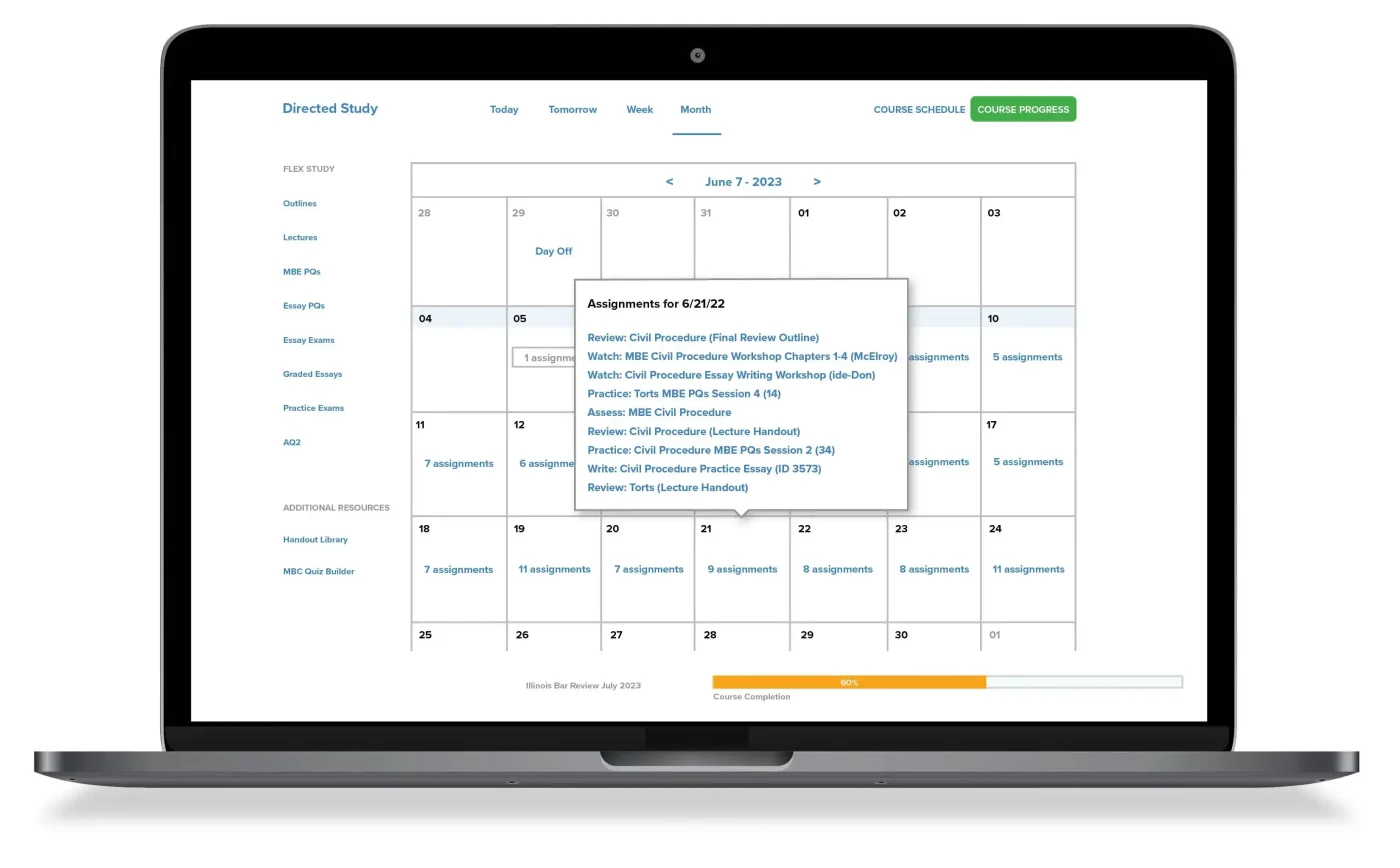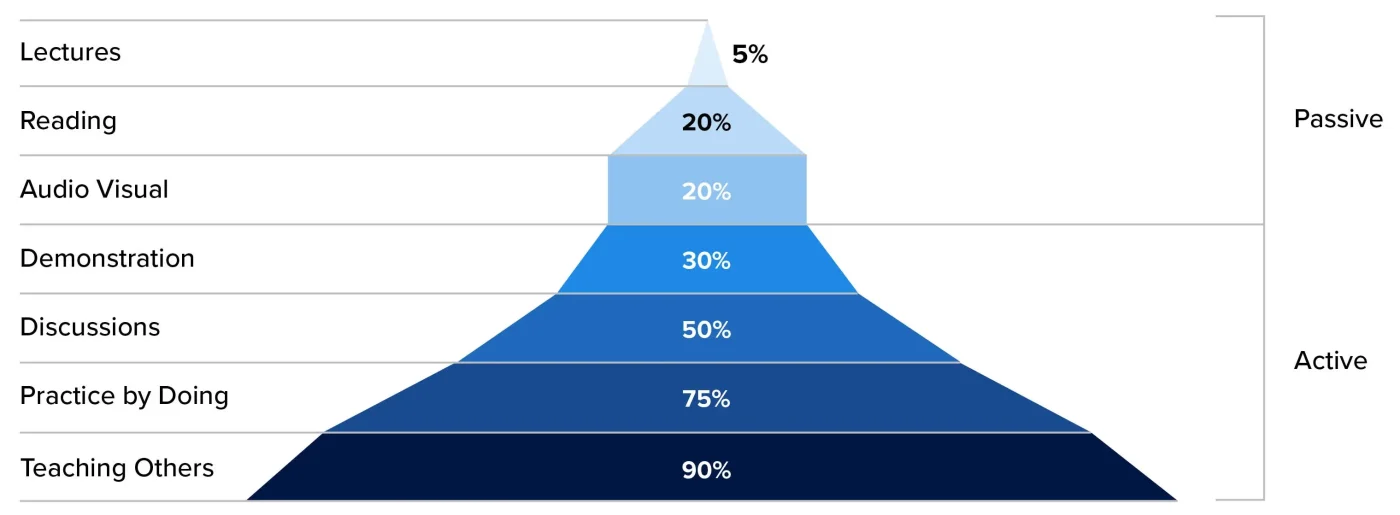The National Conference of Bar Examiners (NCBE®) developed the MEE, which consists of six, 30-minute essay questions. It is administered on the last Tuesday of February and July as part of the bar examination.
About the MEE
Uniform Bar Examination (UBE®) jurisdictions weigh the MEE component at 30%. The weighting varies for non-UBE jurisdictions, including California, Florida, Georgia, Hawaii, Louisiana, Mississippi, Nevada, Puerto Rico, South Dakota, Virginia, and Wisconsin.
Subjects
The MEE tests you on the rules of law and legal concepts centered around 12 subjects. The exam has 6 questions, but multiple topics can be included in each one.
| Business Associations | Evidence |
| Civil Procedure | Family Law |
| Conflict of Laws | Real Property |
| Constitutional Law | Secured Transactions |
| Contracts | Torts |
| Criminal Law and Procedure | Trusts and Estates |
There is no way to know precisely which MEE subjects you'll be tested on, so study every topic thoroughly. Here is the frequency with which each subject has appeared on the MEE since 2014.
| Subject | Total Questions | Paired with Another Subject |
|---|---|---|
| Agency and Partnership | 14 | 4 |
| Corporations and LLCs | 13 | 5 |
| Civil Procedure | 17 | 1 |
| Conflict of Laws | 4 | 4 |
| Constitutional Law | 10 | 2 |
| Contracts | 14 | 0 |
| Criminal Law | 6 | 1 |
| Criminal Procedure | 9 | 2 |
| Evidence | 11 | 3 |
| Family Law | 9 | 0 |
| Real Property | 12 | 0 |
| Secured Transactions | 12 | 0 |
| Decedents’ Estates (Wills) | 11 | 4 |
| Trusts and Future Interests | 10 | 3 |
With the implementation of the NextGen bar exam in 2026, the MEE will stop testing the subjects Conflict of Laws, Family Law, Trusts and Estates, and Secured Transactions.
Grading
Grading scales vary by jurisdiction, but each essay answer is scored on a scale of 0 to 6 on the UBE. To ensure fairness, bar exam graders compare a "calibration packet" of 30 student papers and rank-order them according to predetermined criteria. This is known as relative grading.
For example, a raw score of 6 conveys that the answer indicated a thorough understanding of the law and an ability to communicate rationally. In contrast, a 0 is typically given when there is no response. A 1 signals that an essay answer was among the worst in the calibration packet and showed little indication of reasoning, communication skills, or an understanding of the law.
Raw scores are converted into scaled scores, so your final score will not be between 0 and 36.
How to Study and Prepare for the MEE
Here are actionable tips for MEE preparation and relevant tools to help you implement them.
Memorize and Understand Black Letter Law
Blackletter law is a fundamental and well-established set of legal rules. Memorizing and understanding these will give you a serious advantage on the MEE.
Use Spaced-Repetition Flashcards
Spaced-repetition flashcards are an effective way to memorize content by presenting material at systemic intervals. It is the opposite of cramming. New flashcards are presented at shorter intervals (e.g., 1 hour, 5 hours, 1 day), with the frequency of flashcards decreasing based on your understanding and familiarity.
For example, you can create a flashcard containing material on “subject matter jurisdiction,” a frequently tested Civil Procedure topic on the MEE. An hour later, the flashcard presents itself, and you don’t understand the material and grade it as “difficult.” As you see it 4 hours, 8 hours, or 12 hours later, you start to get the hang of it and may rate it as “average.” The card appears less frequently as it becomes easier, ensuring you retain Civil Procedure concepts even after 10 weeks.
Create unlimited, customize flashcards with the UWorld MBE Bar Prep app and memorize black letter laws anytime and anywhere.
Improve Your Issue-Spotting Skills
Checking the call of the question first will help you navigate complex fact patterns, write a focused answer, and become a better issue spotter. If you can’t identify the issue, you’ll lose points, and more importantly, the rationale of your answer will suffer. By exposing yourself to as many hypotheticals as possible, you’ll start to recognize patterns and use them to practice these questions.
Check out the NCBE's past MEE questions and this MEE question on Real Property from the July 2024 UBE.
Take an Active Learning Approach
Active learning imitates the exam's substance, form, and conditions. That's why it's important to start writing practice essays with exam-level MEE questions to train your issue-spotting skills while identifying the blind spots. As you practice, create outlines or mind maps for review and follow an issue-spotting checklist to narrow your answer.
Access dedicated essay graders with the Themis + UWorld Bar Review Bundle. Get guidance from attorneys and reference high-scoring sample questions for comparison.
Make a Study Plan
Passing the MEE becomes easier by breaking your overarching goals into mini-goals. Themis Bar Review gives you access to our adaptive study calendar that adjusts your study schedule based on your selected start date, available study time, and more. The progress monitor tracks your performance so you always know which subjects you should be studying, when you should be studying them, and for how long.
How Long Should You Study for the MEE?
The time you need to study for the MEE depends on your academic background, how well you understand the material, and whether you are working full or part time.
Studying Full Time
We recommend you begin studying approximately 8-10 weeks before the date of your bar exam. With this timeline, you can study 40-50 hours a week. You'll have to study 1 to 2 MEE subjects per week while reviewing the subjects you've already learned as you get closer to the exam.
Studying with a Full-Time Job
If you have a full-time job, a family, or other responsibilities, we recommend starting 4-6 months before your exam. This timeline will give you 16-25 hours a month to study for the MEE, enough time to study 1 subject every week.
Tips to Improve Your MEE Score
Think about answering each MEE question as if you’re solving a math problem. Being clear, concise, and showing every step of your work will help you gain maximum points on each essay.
Bar examiners will be more likely to award you points if you structure your answers in an easy-to-read way. Using a clear header and breaking each answer into sections makes it easier for the reader to understand exactly what they're looking at.
How UWorld Can Help You Raise Your MEE Score
Our study methodology is based on active learning. Research shows that active learning increases retention and improves exam performance. It demonstrates that when multiple neural pathways are activated simultaneously, they make new connections more efficiently. The more stimulating the activity, the more efficient the learning process becomes.
Our product covers every section of the learning pyramid but focuses on the areas with the highest return on investment.
The following tools are how the Themis + UWorld Bar Review Bundle implements our active learning methodology for the MEE:
- 100+ essays from past bar exams
- Personalized feedback from a dedicated attorney essay grader
- Essay skills workshops that teach techniques for every subject
- Unlimited essay grading from attorneys and bar exam experts












